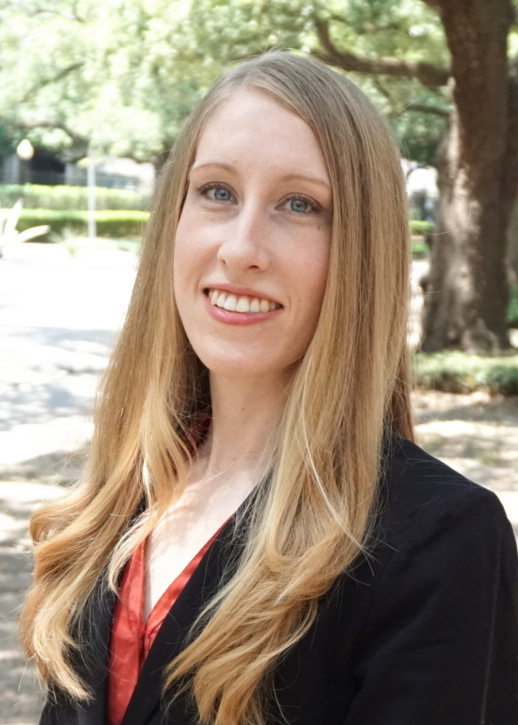Where Are They Now? From Research!America Intern to HHS ORISE Fellow, Catching up with Dr. Jessica Scott

Where Are They Now? From Research!America Intern to HHS ORISE Fellow, Catching up with Dr. Jessica Scott
Research!America relies on interns and fellows, whose skills drive our mission forward. In this new blog series, we are catching up with previous interns and fellows to see how Research!America impacted their career, helped them build professional and transferable skills, and network with leading experts in the science and medical research and development ecosystem.
Jessica Scott, PhD, has been an ORISE fellow at the U.S. Department of Health and Human Services (HHS) since 2021. Her work with HHS focuses on scientific integrity policy, as well as various research projects. One of her current research areas focuses on clinical trial diversity. During her time with Research!America, she was a Science Communications Intern, Science Policy Fellow, and Policy and Advocacy Program Associate.
Here are some highlights from our conversation with Dr. Scott.
Interview has been edited for clarity and length.
What made you choose an internship at Research!America?
“I knew I was interested in policy and advocacy when I graduated from my PhD program, but I didn’t have a lot of career experience. I thought Research!America seemed like a good fit, where I could use my background in biomedical sciences, learn about different aspects of policy and advocacy, and see where I wanted to fit in that space.”
What were some of the projects that you worked on during your time at Research!America?
“One of my first projects was [analyzing]. It was fun playing around with that data and see the best ways to present it. I also worked on the scheduling people for interviews and getting to sit in on some of those interviews. I worked on the inaugural. There are generally plenty of early career staff at Research!America, which is great, because we were able to use our experiences to guide what the Summit was going to look like.”
What did you enjoy most about your time at Research!America?
“I learned so many different things, and it was cool figuring out what I wanted my next [career] step to be. We met with several senators’ and representatives’ staffers and asked them to provide additional funding for COVID-related research. That was really cool to me because I had graduated in the middle of the pandemic, and I’d seen the way that our funding was depleted and how [COVID] affected our research – having to spend basically everything on overhead costs and not being able to be in the lab doing actual work. Seeing that little piece of the policymaking process was interesting to me.”
“Research!America is such a great place to work on [science communication]. I think a lot of people who have worked in those spaces like public health and virology and even non-COVID-related stuff are realizing that they need to learn how to communicate their science.”
How did your experience at Research!America differ from your experience with other companies?
“Research!America is a lot smaller than other places I’ve worked at before. I think that helped me see how an organization is run and I got my hands in all the different aspects of advocacy and policy that Research!America is doing. You talk to almost everybody in the organization, so you’re going to learn what they are working on. Even if it’s not something you’re working on, you get the sense of what’s important in this space, this is what we need to be paying attention to. For a small organization, Research!America has their hands in a bunch of different areas, so seeing who’s in charge of what and what’s important in the field was valuable.”
Where do you see yourself in five years?
“I’ve really liked federal service. In five years, I hope that I’ll be working as a full-time policy analyst at HHS.”
How did Research!America prepare you for what you’re doing today?
“Research!America gives you this whole picture overview of the policy and advocacy landscape as it pertains to health care. So, things like working on the newsletter gave me some really good insights into things like what are the most important health topics and how to figure out the most important health policy issues to focus on. Working that muscle of quickly learning about vastly different topics, maybe that you’ve never worked on before is helpful, because there’s always something new that’s happening in the policy space.”
What drives you to stay in the science/advocacy/research space?
“It’s just really interesting. The landscape is always changing, and I love learning about a variety of different things, and seeing where the field is going. For example, a year ago artificial intelligence was not really on our radar for health and science policy, right? But now it’s a major concern and we need to know about it.”
Is there any advice you would give to the current and future interns and fellows at Research!America?
“Take advantage of where you are right now. I think the environment at Research!America is so collegial, and people are so willing to help the interns and fellows. If you’re interested in something, and you want to learn a little bit more about it, and maybe [it’s not quite] Research!America’s space, there’s probably going to be somebody who knows who you can talk to, somebody who might have a job opening, or somebody who it might just be fun to interview because you want to learn more about their career. Take advantage of where you are and the kind of opportunity that you have to figure out what you’re going to do next.”
Is there anything else you’d like to share about your time at Research!America?
“I really enjoyed my time at Research!America. I love that the fellowship and internship programs provide so many opportunities to people. It’s fun to come back and hear what’s going on now and share what I’ve been up to.”




